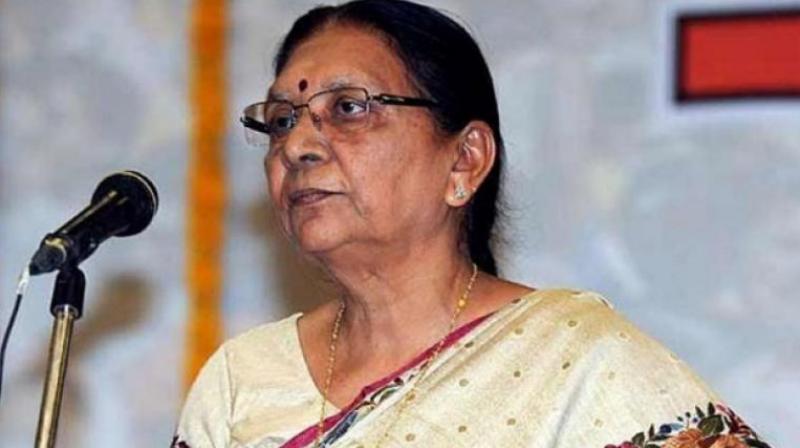2016: Una incident, Anandiben's resignation marked tumultuous year for Gujarat
After 25 years the ruling BJP seems to lack a strong state leader to fill the void after Narendra Modi's exit from Gujarat.

Ahmedabad: The Patel quota agitation and Dalit uprising after the Una flogging incident took the toll on Gujarat's first woman chief minister Anandiben Patel in 2016, setting the stage for a cliff hanger elections next year.
Sensing it could inch closer to power in Gujarat after 25 years as the ruling BJP seems to lack a strong state leader to fill the void after Narendra Modi's exit from Gujarat, Opposition Congress stepped up protests and rallies against new Chief Minister Vijay Rupani.
AAP supremo Arvind Kejriwal, hoping to make inroads, visited the state thrice and during one such visit described Rupani as "rubber stamp" of BJP president Amit Shah.
Modi himself visited the state five times in the past as many months as the party here believes that winning the elections will be crucial for it to retain power at the Centre in 2019. Trips of Shah also increased.
Cow vigilantes mercilessly thrashing Dalit youths in Una town when they were skinning a dead cow led to violent agitation by the community in the state and created outrage in the country.
Congress Vice President Rahul Gandhi visited Gujarat afterthe Una incident so did BSP supremo Mayawati, Left leaders Brinda Karat and D Raja and JD (U) leader Sharad Yadav.
The Dalit agitation continues under young leader Jignesh Mevani, as the community has decided to boycott their traditional work of disposing of dead animals carcasses and are instead demanding land and jobs from the government.
Simmering Patel quota agitation led by Hardik Patel continued to be a big concern for the BJP government and its declaration of 10 per cent quota for economically backward among upper caste, was also struck down by Gujarat High Court.
Hardik, who was behind bars till June in sedition cases, was granted bail by the high court with a condition that he will have to remain outside Gujarat for next six months. At present he is leading the agitation from Udaipur of Rajasthan and is expected to return to the state in January.
The Patel community, which had been a staunch supporter of the BJP, continued to remain up in arms against the state government on its demand of reservation. To pacify the community, the state government declared 10 per cent quota for economically backward among upper caste on April 29. However, the move was struck down by the high court soon, after which the state government approached the Supreme Court.
The state government sensing trouble after return of Hardik in January had in November invited agitating Patel community members for fresh round of talks on their demand, but these have remained inconclusive so far.
Analysts say mishandling of Patel quota agitation and late action after the Dalit flogging case of Una led to the ouster of Anandiben, who also faced charges of corruption against her family members. She resigned in August after being at the helm for over two years.
Transition of power was not smooth, as Anandiben apparently wanted her trusted aide Nitin Patel to be the next chief minister while Shah wanted his man Rupani in the hot seat. As a compromise formula, Rupani was made chief minister and Patel his deputy.
For first-time MLA Rupani, the year proved to be quite lucky, as he was made state party president in February and elevated to the post of chief minister in August, though he belongs to minority Jain community which has just 2 per cent population in the state.
Congress, which had won local bodies polls in 2015, increased protests and rallies in Gujarat in the year and started preparations for next year's crucial polls. The
Opposition party has almost finalised its candidate selection process to give ample time to them to campaign.
In a boost to BJP after Modi's demonetisation move, it won local bodies elections in November capturing 107 of the total 123 seats.

